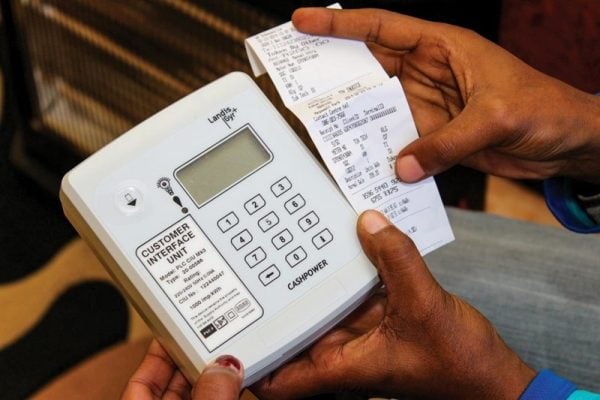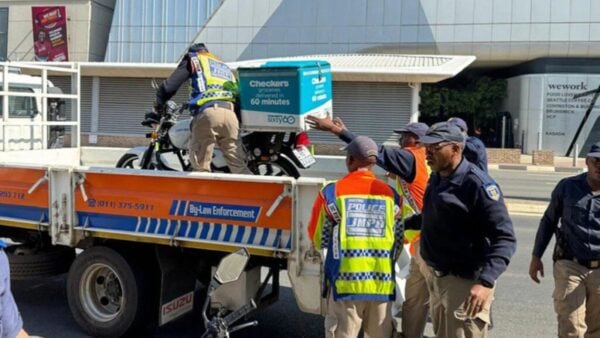Two companies stopping Starlink in South Africa

Vestact Asset Management director Byron Lotter says he has no doubt that Vodacom and MTN are lobbying hard to prevent Starlink’s entry into South Africa — and for good reason.
“I’m a big fan of Starlink, especially after using it while travelling to remote places in Southern Africa,” Lotter wrote in a recent Vestact newsletter.
“You may be surprised by what I am going to say next, but hear me out. I do not blame our government for preventing Starlink from operating in South Africa without jumping through a few hoops.”
Lotter argued that MTN and Vodacom have been forced to deal with many regulatory hurdles to operate mobile data networks in South Africa.
“They have also ploughed in billions of rands, building infrastructure, creating jobs, and connecting most of our country to the Internet,” he said.
“Sometimes they have been forced to provide a signal in remote areas, even if it didn’t make financial sense. But they did it to please the regulators.”
Therefore, it would be unfair to let Starlink in without similar treatment.
Vodacom and MTN have told industry regulator Icasa as much, saying that satellite operators like Starlink should be held to the same standards as terrestrial operators.
Vodacom specifically highlighted local ownership, control, social obligations, performance, and sanctions in recent feedback to the regulator about a proposed licensing framework for satellite services.
It noted that B-BEEE requirements formed part of the qualifying criteria for acquiring radio frequency spectrum in Icasa’s 2022 auction, in which Vodacom spent over R5 billion.
“Satellite operators should be subject to similar B-BEEE requirements for ground earth stations located in South Africa and for service provision,” Vodacom stated.
“If Icasa wishes to amend local presence or B-BEEE requirements, it should do so for all market players, including mobile operators, through a transparent consultation process.”
While MTN, Maziv, and others agreed that all telecommunications network operators should be treated equally in terms of licensing requirements, Vodacom went a step further.
Vodacom advocated for guardrails to be established to govern how satellite services integrate into terrestrial infrastructure.
South Africa’s largest mobile operator said this was to ensure that satellite players would not harm existing services to consumers or the associated infrastructure investments.
“A prudent approach would be to consider satellite operators’ direct-to-device services as supplementary infrastructure providers to local licensees,” Vodacom said.
Direct-to-device refers to a satellite service delivered directly to a smartphone or similar consumer-grade device.
Vodacom suggested that Icasa clarify that satellite operators who intend to provide D2D services need to gain the agreement of mobile network operators on mutually agreeable commercial terms.
The BEE sword hanging over ISPs

The Electronic Communications Act (ECA) states that telecommunications operators offering services nationally must be at least 30% owned by historically disadvantaged groups.
However, Icasa published regulations in 2021 that would make anything less than 30% black ownership insufficient.
In the same breath that it announced these new regulations, Icasa suspended them to an undetermined future date, leaving them hanging over the industry like a proverbial sword of Damocles.
This regulatory uncertainty caused SpaceX to pause plans to roll out Starlink in South Africa.
Where South Africa would have been among the first Sub-Saharan countries to receive Starlink, we will now be among the last.
There is evidence that SpaceX had been gearing up to launch in South Africa for some time, including establishing a local company.
CIPC records show that SpaceX registered a local entity in 2019 called SpaceX Internet Services South Africa (Pty) Ltd.
A modest proposal

At the end of his opinion about Starlink in South Africa, Lotter asks an open-ended question: “If you disagree, let me know why?”
While it is fair to say that Starlink should be treated the same as Vodacom, MTN, and others, there is another option.
Rather than subjecting all network operators and ISPs to the same BEE requirements, scrap them completely.
They do more harm than good, and will do even more damage when fully enforced.
South Africa has a flourishing and competitive industry of small, medium, and micro enterprises selling ISP services. Many of them are one-man shows.
This was enabled due to a quirk caused by a 2009 court ruling after the ECA repealed the Telecommunications Act of 1996.
If Icasa decides to enforce the ECA’s BEE requirements to the letter, many of these entrepreneurs will be forced to operate unlawfully, sell, or shut down.
There is an alternative to scrapping the BEE requirements on the table — equity equivalent programmes for multinationals.
These are standard mechanisms endorsed by the Department of Trade and Industry (DTI) that provide alternative means for multinationals like SpaceX to comply with BEE.
Communications minister Solly Malatsi announced last year that he would direct Icasa to consider implementing equity equivalents for the telecommunications sector.
However, not only is this putting lipstick on a pig, a group of South African politicians is opposed to it.
Khusela Diko, the chairperson of the Parliamentary Portfolio Committee on Communications, has accused Malatsi of wishing to “appease business interests”.
Diko said Malatsi was trying to “cut corners” and “erode hard-won transformation goals”.
This was despite the fact that equity equivalent programmes are a well established mechanism from the DTI implemented across several other business sectors.
“Minister Malatsi should know that when it comes to transformation in the ICT sector, the law is clear on compliance,” said Diko.
“Cutting corners and circumvention is not an option — least of all to appease business interests.”
Diko said it appeared that Malatsi’s proposed directives and regulations are an attempt to undermine empowerment legislation by stealth.
“Should this be found to be the case, they will be fiercely opposed.”
Since there will be a political fight regardless, we might as well have the bigger fight for the better outcome and remove the BEE requirements for telecommunications licences.
































